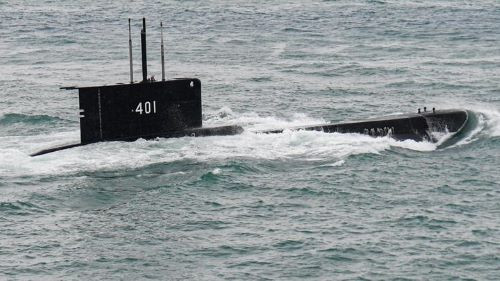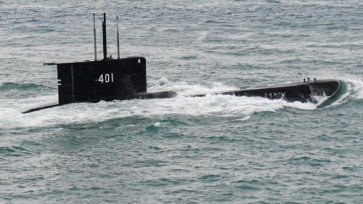Popular Reads
Top Results
Can't find what you're looking for?
View all search resultsPopular Reads
Top Results
Can't find what you're looking for?
View all search resultsNaval ship acquisition in the face of modern warfare
The ability to address and achieve sea denial, sea control, and collaborative combat, should be considered a priority by the Navy.
Change text size
Gift Premium Articles
to Anyone
A
s Indonesia reaches the end of the third phase of its Minimum Essential Force (MEF) plan, the country is expected to continue its military modernization over the next five years. The continuity of such programs will be welcome as the evolution of the security context at global and regional levels is particularly worrying.
The past has shown that operating a modern and capable navy is essential to protect a country’s sovereign interest. Indeed, concepts of sea denial, sea control and collaborative combat have been extensively used: among others, they prefigure what modern naval warfare will look like and should serve as lessons learned for the Indonesian Navy.
For example, in the Rea Sea, the Houthis have resumed attacks on shipping and have targeted at least two vessels in the past weeks, while launching what the United States Department of Defense has dubbed a complex attack that involved cruise missiles and unmanned aerial vehicles (UAVs) against commercial shipping and coalition warships.
In the Black Sea, navies all over the world are relearning the importance of sea control and the ability, like in the Red Sea, to ensure the protection of vital sea lanes of communication.
Interestingly, the lessons learned from both areas are considered by the US Chief of Naval Operations (CNO), Lisa Franchetti, as a must in order to be ready to handle a potential conflict with China.
As a matter of fact, increasing tensions due to China’s aggressiveness in the South China Sea are becoming even more concerning and experts and observers believe that in a case of conflict in the region, it will be necessary for Indonesia to be able to defend its national interests and sovereignty through key strategic concepts that are extensively used in current tensions and conflict areas.
It is worth noting that the evolution seen above is leading armed forces and navies around the world to discuss further and review their own doctrines and strategies in order to adapt to upcoming security challenges. This is also the case in Indonesia, where this ongoing reflection can be highlighted with the conduct of numerous seminars and focus group discussions (FGD) held over the past weeks and months by the Indonesian Military (TNI), and especially the Navy.



















